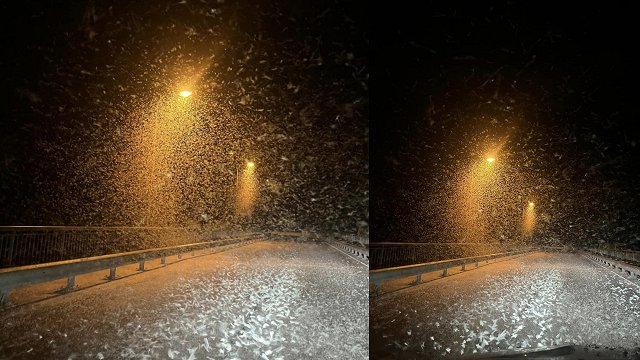At the beginning of April, Latvia was rapt by the story of a cub that wandered for several days on the Limbaži-Aloja road. In order to prevent both the bear cub and traffic danger, a decision was made to transfer the animal to the Riga National Zoo, from where the bear cub was later transferred to France.
The Latvian Nature Conservation Agency (DAP) said that there are no large enough uninhabited places in Latvia where the bear can be released into the wild, while the construction of a special home for it would cost around 300,000 euros, "Environmental Facts" reported.
There are currently at least 70 bears living in Latvia, and there are more and more frequent encounters with them face-to-face. The bear cub found near Limbaži ran on the road and created a danger to traffic safety, said Gita Strode, director of the DAP.
"It must be admitted that, unfortunately for us, the level of knowledge of the population is what it is, there was a risk that someone would think to take it home and, God forbid, save something without knowing what they were saving. A decision was made to take this animal and move it to the Riga Zoo," explained Strode.
The cub spent the next month in quarantine while the Rīga Zoo intensively searched for a new home.
Jānis Ozoliņš, the leading researcher of the Latvian State Forestry Institute "Silava", stated that he was very skeptical about releasing the bear back into the wild. "Of course, you want to preserve such a bear, but you have to look in the overall context – do we have the relevant infrastructure, do we have a goal, what will happen to him next?"
As previously reported the La Taniere Zoo in France stepped forward with the offer of a home and consequently on May 25, the bear left Latvia by plane for la vie en rose in France. The price of a cub-class ticket was 550 euros, if you've ever wondered about the cost of flying bears around Europe. La Taniere specializes in rehabilitating animals.
Representatives of La Taniere told LTV everything was fine with the animal's health. The cub is currently confined to a 150-square-meter compound while health checks are performed and permission to release it into a far wider and wilder habitat is awaited. The process is likely to take around 4 months.




























